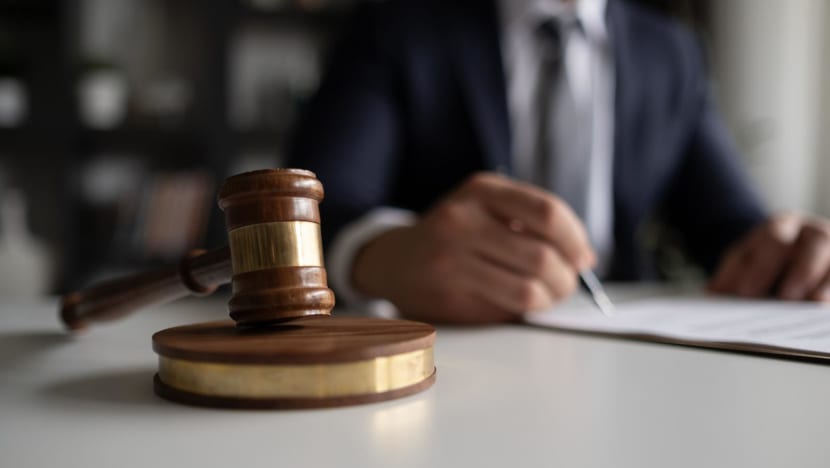Billion-dollar money laundering case: 4 law firms dealt with over conveyancing of properties
One lawyer has been flagged for disciplinary action.

Lawyers from four law firms that breached their anti-money laundering obligations for real estate property transactions in Singapore's billion-dollar money laundering case have been referred to the Law Society to consider further disciplinary action. (File photo: iStock)

This audio is generated by an AI tool.
SINGAPORE: Two law firms that were involved in the conveyancing of real estate properties seized in Singapore's billion-dollar money laundering case have been ordered to pay tens of thousands of dollars in financial penalties.
Singapore's director of legal services Sarala Kumari Subramaniam, supported by the Ministry of Law (MinLaw), has conducted investigations into 24 law practices involved in the case.
Investigations into 11 of them have concluded. Two were ordered to pay S$30,000 (US$23,400) and S$100,000 in financial penalties.
“The director of legal services has issued a third law practice with a statutory notice of the intention to order that law practice to pay a financial penalty of S$70,000,” the law ministry announced in a media release on Tuesday (Jul 15).
“A final decision will be made upon receiving and considering the law practice’s written representations, if any.”
A fourth law firm has been privately reprimanded by the director of legal services, while one lawyer has been referred to the Law Society for disciplinary action.
“The director of legal services has determined that it will not be necessary to take further regulatory action against seven law practices,” said the ministry.
The director is considering the inquiry findings for the remaining 13 law practices and whether any lawyers should be referred to the Law Society for disciplinary action.
Conveyancing refers to the legal process of transferring the ownership of a property from one person to another.
The press release did not state the names of the law practices involved. CNA has reached out to MinLaw on this.
A Law Society spokesperson confirmed that one lawyer had been referred to it for disciplinary action, but was unable to reveal the identities of those involved.
“As the referral relates to disciplinary matters, such proceedings are confidential and we are unable to provide any information on the identity of the lawyer referred, the law firm involved or the status of the proceedings,” the spokesperson told CNA.
The money-laundering case involved millions of dollars earned over the years from an illicit gambling ring with Southeast Asian bases, and that was aimed at punters in China.
Investigations into the transnational case date back to 2021 and culminated in islandwide police raids in August 2023.
Singapore police seized luxury cars, watches, jewellery, designer goods, cryptocurrency and cash. More than 150 properties were also seized, including homes in Singapore’s most upmarket neighbourhoods.
Ten foreign nationals were arrested. All have been convicted and were deported after serving their sentences.
Earlier this month, the Monetary Authority of Singapore imposed S$27.45 million in penalties on nine financial institutions for breaches related to the money laundering case.
Action has also been taken against 18 individuals involved in managing relationships with suspects in the case.
VIGILANCE AGAINST MONEY LAUNDERING
All law practices and lawyers are subject to anti-money laundering obligations under the Legal Profession Act 1966.
These obligations include performing an adequate analysis of the risks of money laundering in relation to each client and performing customer due diligence measures that are in line with a client’s risk profile.
Lawyers and law firms also have to file a suspicious transaction report with the police if they have reasonable grounds to suspect that a client might be engaged in money laundering.
If a law practice or lawyer decides to continue to act for the client despite these suspicions, they must substantiate and document the reasons for the decision and adopt "commensurate risk mitigation measures", including enhanced customer due diligence and monitoring measures, said MinLaw.
Law practices must also have internal anti-money laundering policies, procedures and controls which fulfil the regulatory requirements and are sufficiently robust, said MinLaw.
Law practices that breach their anti-money laundering obligations are liable to face regulatory control action against their licence.
Lawyers who breach their anti-money laundering obligations could also face disciplinary proceedings, which could result in monetary penalties, suspension from legal practice or disbarment.
On Jun 23, the law ministry issued a guidance note to the legal industry to further detail the responsibilities of law practices and lawyers under their statutory anti-money laundering obligations.
The guidance covered areas such as analysing client risk, identifying material red flags, establishing a client’s source of wealth, the ongoing monitoring of clients and their transactions, and the timelines for filing suspicious transaction reports.
"Singapore has a comprehensive anti-money laundering regime," said the ministry.
"However, the landscape is constantly changing, as new money laundering risks and typologies emerge.
"Everyone has a role in ensuring that Singapore’s anti-money laundering systems continue to be robust, from the law enforcement agencies, to the service providers such as the financial institutions and law practices, to the general public."














